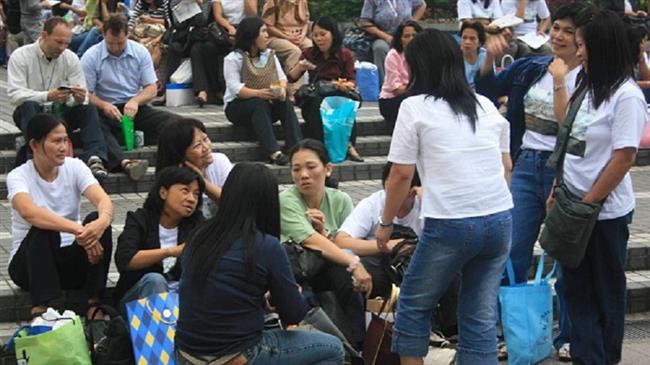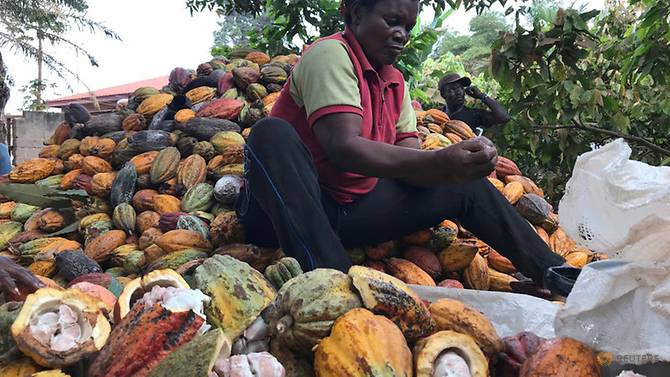13, February 2018
Construction starts on Cameroon’s first destination retail mall 0
Actis (www.Act.is), a leading growth markets investor has started construction on “Douala Grand Mall & Business Park”, Cameroon’s first destination retail & leisure mall.
Developed by Actis and local partner Craft Development, Douala Grand Mall will comprise of 18,000 square metres of retail and leisure space, close to Bonapriso in Cameroon’s largest city. The mall will include multiple restaurants, a children’s play zone, a five screen cinema, a supermarket and retail shops. The Mall is Phase 1 of the development which also includes a business park hosting a hotel and corporate offices spaces.
To continue its strategic roll-out in modern trade, CFAO the international group specialised in distribution in Africa, has signed an agreement to set up and operate a Carrefour Market in the shopping mall and the leading Hospitality & Entertainment conglomerate Genesis Group is the cinema anchor.
The South African contractor, Raubex has been appointed as the general contractor and is now mobilised on site. A formal ground-breaking will take place mid-2018. The project is expected to create over 4,500 jobs using local material and labour and has been granted tax incentives following a convention signed with the Government of the Republic of Cameroon.
Amanda Jean-Baptiste, Partner, Head of West Africa, Real Estate at Actis, said: “Actis is thrilled to reach this key milestone in delivering Cameroon’s first destination retail mall; anchored by two flagship brands seeking to benefit from the growing consumer power. The Mall will make a significant contribution to job creation and other economic indicators in the Cameroonian economy.”
Mathurin Jidjouc Kamdem CEO of Craft Development added: this is a landmark project that will provide the vibrant city of Douala with one of its biggest international standard mixed-used development, with over 4,500 jobs created in both the construction and the operation phases.
Actis is also invested in the electricity sector in Cameroon. In partnership with the government Actis holds a majority interest in the country’s electricity utility, Eneo. Actis is in advanced discussions with the Government to facilitate further significant investment into the energy sector to continue to expand the electricity grid and improve the quality of supply. Actis has also established Honoris United Universities, a pan-African higher education business which brings together the most prestigious universities, Actis also has a strong presence across the wider Francophone Africa region including energy, education and healthcare businesses.
Source: Internationalsupermarketnews































13, February 2018
Cameroon: Second-hand goods users and dealers lament over high prices 0
The second-hand goods business has known heydays in Cameroon, but current trends are a little disturbing for both users and importers of these goods. In Cameroon more than 80 percent of the population survives thanks to second-hand goods imported mostly from Europe and North America.
Users of these products are usually considered as low-income earners whose resources cannot let them walk into some of the chic shops in the country. In the past, while the rich considered these goods as being underneath their social class, users of imported second-hand good held that these goods were not only more durable than brand new goods, they were within reach financially.
Today, as the prices of goods escalate worldwide, these goods have become rare and obtaining them is becoming a nightmare to the population. All over the country, consumers are complaining that these goods have become very difficult to access due to high prices.
Exif_JPEG_420
Talking to some second-hand household equipment retailers at the Obili and Essos neighborhoods in Yaounde, we figured out that the high prices are due to high importation cost importers have to pay to get the goods into Cameroon.
While retailers blame this unfortunate situation on importers of these goods, the importers, for their part, blame the unfortunate situation on high taxes, corrupt customs officers and high custom duties. Many Cameroonians hold that D.I.T, the company in charge of imported containers at the Douala seaport, is also to blame due to arbitrary decisions and corrupt practices that are hurting Cameroonians financially and the company’s reputation.
Focusing on second-hand cars which are highly solicited by Cameroonians, we were told by dealers that, the prices of these cars had increased because the government had tactically increased some taxes at the Douala Port. Some of the taxes on second-hand cars, they say, can be witnessed at SOCOMAR, a company in charge of imported cars at the Douala seaport. Many used car importers claim that some taxes have increased from about CFAF 21,000 to about CFAF 35,000 for vehicles whose first registration was in 2000 and from about CFAF 18,000 to about CFAF 25,000 for vehicles whose first registration was in 1992 and up.
Meanwhile, duty has increased from about 67% to about 87%. Some of the taxes that are posing challenges to car importers and clearing agents include the “stationing tax” and “the entry or pass tax”. The stationing tax has increased from CFAF 350 to CFAF 1,650 per day, while the entry or pass tax has increased from CFAF 500 to CFAF 1,850 per day.
The stationing tax is the tax paid per day for space occupied by an imported car at the SOCOMAR car park. Despite threats of a strike action by car importers and clearing agents, SOCOMAR authorities are turning a deaf ear. Clearing a car at the SOCOMAR car park takes more than 14 days instead of 5 days as it was in the past.
According to the car importers and clearing agents, the increase in these two taxes in particular and the dereliction duty on the part of SOCOMAR authorities are deliberate attempts by these authorities to extort money from them.
Many used car importers hold that SOCOMAR is one of the most corrupt company at the Douala seaport. It is common knowledge that custom officers and other taxation officers usually use coded language like “five greens, two greens, one green and half green” to refer to CFAF 50,000, CFAF 20,000, CFAF 10,000 and CFAF 5,000 respectively when asking for a bribe.
Talking to some clearing agents on the coded language used by custom officials, they all angrily referred to a certain Muslim lady who is an Inspector of customs at SOCOMAR whose name Cameroon Concord News has decided to withhold.
Exif_JPEG_420
It should be recalled that on December 22, 2017, the National Anti-Corruption Commission (CONAC) published a list of 21 custom officers who own many luxurious buildings in Cameroon and bank accounts of over CFAF 134 million. Cameroonians are still waiting to see if legal actions will be taken against them.
Many are also looking forward to this ill-gotten wealth to be recovered by the state. On August 4, 2016, Cameroon and the European Union signed an economic partnership agreement exempting some goods from taxes and custom duty with the objective of improving the country’s economic situation.
Despite these exemptions, the country’s economy is not improving as thought. Many importers are still facing the same situation and corruption that has made life challenging to the ordinary man is still persisting and blighting many lives.
Meanwhile, President Paul Biya in his February 10, 2018, speech to the country’s youths, blamed the economic hardship in the country on the insecurity in the Northern Region as well as the Anglophone crisis that has been playout for over fifteen months.
He tactically avoided touching on the corrupt activities of government officials who due to continuous unnecessary increase in state budget have created loopholes that are helping some individuals to line their pockets to the detriment of ordinary citizens who are made to pay some of those punitive taxes.
For two years running, custom duty and other taxes have been increased and this is discouraging many young businessmen who want to join the goods importation business. This is not pleasing to many young Cameroonians who hold that business will be an opportunity for them to escape poverty and unemployment that have transformed the country into a living hell.
By Meshack Mbeng Enowmbi in Yaounde